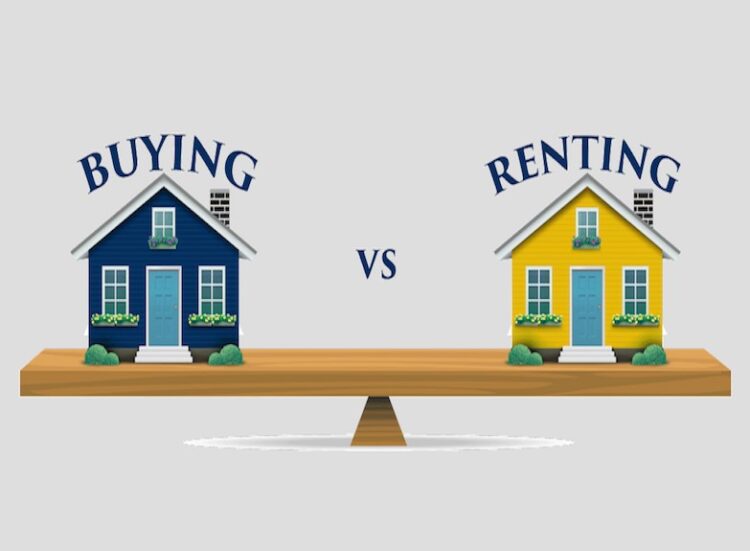Navigating the decision to rent or buy a property can feel like choosing between two perfectly brewed cups of coffee. One offers instant satisfaction with minimal commitment, while the other provides a long-lasting sense of ownership—at a higher upfront cost. Deciding between the two isn’t just about numbers. It’s about aligning with your goals, preferences, and lifestyle.
Key Points
- Renting offers flexibility without long-term responsibility.
- Buying builds equity but requires significant investment.
- Financial goals and market conditions should shape your decision.
- Understanding future plans is critical before committing.
- Lifestyle and property preferences are major factors.
Renting: The Freedom to Explore Without Tying Yourself Down
Think of renting as a short-term lease on lifestyle experimentation. Without the responsibility of maintenance, you can enjoy flexibility to move or adapt as your needs change. This approach is particularly appealing to expatriates or individuals not ready for a long-term financial commitment.
Advantages of Renting
- Low Upfront Costs: Unlike buying, renting only requires a deposit and monthly payments.
- Freedom to Relocate: Ideal for those with jobs that require frequent relocations.
- No Maintenance Worries: Repairs and upkeep fall on landlords.
Challenges of Renting
- No Ownership: Monthly payments build no equity.
- Subject to Market Fluctuations: Rent can increase with demand.
- Limited Customization: Significant renovations or personal touches aren’t an option.
Insights into Market Options
Properties like Elta offer prime examples of flexibility in Singapore. Elta’s developments cater to individuals seeking affordable luxury while enjoying easy access to amenities and green spaces. Projects from MCL Land and CSC Land reflect a focus on sustainability, community integration, and innovative designs, appealing to renters who value quality without ownership.
Buying: The Commitment to Stability and Investment

Buying property is like planting a tree. It requires patience and care but offers rewards that grow over time. For many, it’s a long-term investment in stability and financial growth.
Advantages of Buying
- Building Equity: Monthly payments contribute to ownership rather than a landlord’s profits.
- Customizable Living: You have the freedom to renovate and personalize.
- Stability: Fixed monthly mortgage payments create predictability.
Challenges of Buying
- High Initial Costs: Down payments, legal fees, and stamp duties add up.
- Market Risks: Property value can decrease based on market trends.
- Long-Term Commitment: Selling property can take time if circumstances change.
Financial Considerations

Choosing to purchase a home means considering future potential, much like evaluating stocks. Market dynamics and personal finances should guide the decision, ensuring you don’t overextend resources.
Factors to Consider Before Making a Decision
Your choice hinges on personal and financial circumstances. Ask yourself:
- Are You Ready for Long-Term Responsibility?
If stability outweighs flexibility, buying might suit your goals. - How Do Current Market Trends Align with Your Goals?
In Singapore, housing trends indicate growing interest in green spaces and eco-friendly designs. - What Is Your Financial Capacity?
Compare the costs of renting and owning, including interest rates and ongoing expenses.
Renting vs. Buying: The Numbers Game
Cost Breakdown
| Aspect | Renting | Buying |
| Upfront Costs | Deposit + Initial Rent | Down Payment + Legal Fees |
| Monthly Payments | Rent | Mortgage Payments + Maintenance |
| Long-Term Value | No Equity | Builds Equity Over Time |
Lifestyle Considerations
Your lifestyle preferences can tip the scales in either direction.
- Flexibility or Permanence?
Renting suits those who value adaptability. Buying aligns with those who seek rootedness. - Space Needs and Amenities
Modern developments such as Elta offer premium living options for both renters and buyers. - Future Plans
If you plan to settle for the long term, buying aligns better with financial stability.
Tips for Making the Right Choice
- Assess Your Financial Situation
Consider income, savings, and long-term goals. - Understand Your Priorities
Rank flexibility, customization, and investment value. - Consult Experts
Speak with real estate agents or financial advisors to weigh pros and cons effectively. - Research Market Trends
Keep an eye on future developments, such as sustainability-focused housing projects. - Think Long-Term
Decide based on how your needs might evolve over the next decade.
Real Estate Dynamics in Singapore

The property market operates like a bustling hawker center—options are plentiful, but timing matters. A growing focus on eco-friendly developments and strategic locations drives demand. Leading developers have set new standards with innovative projects tailored to modern lifestyles.
The Final Verdict
The choice between renting and buying is deeply personal. Renting offers adaptability and lower initial costs, while buying delivers long-term value and security. Your financial goals, current lifestyle, and future aspirations will ultimately dictate the best path.
Like a well-priced apartment, don’t let the right opportunity slip through your fingers. Take the time to evaluate your needs, align them with market conditions, and choose the option that feels like home.
